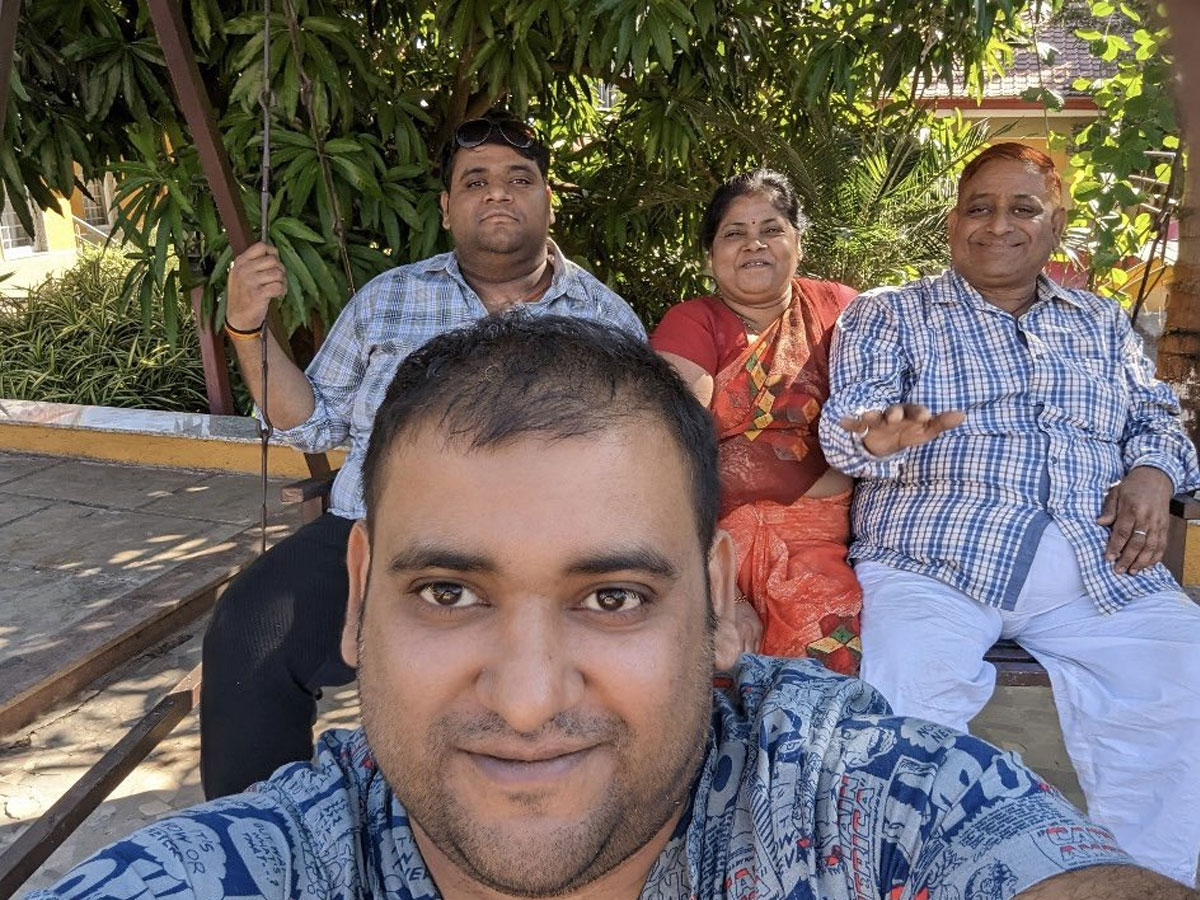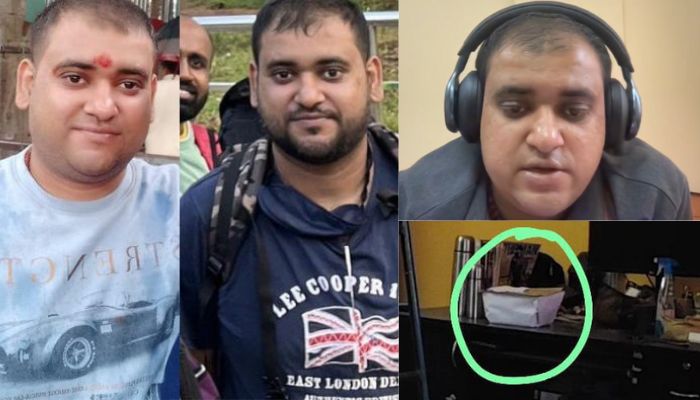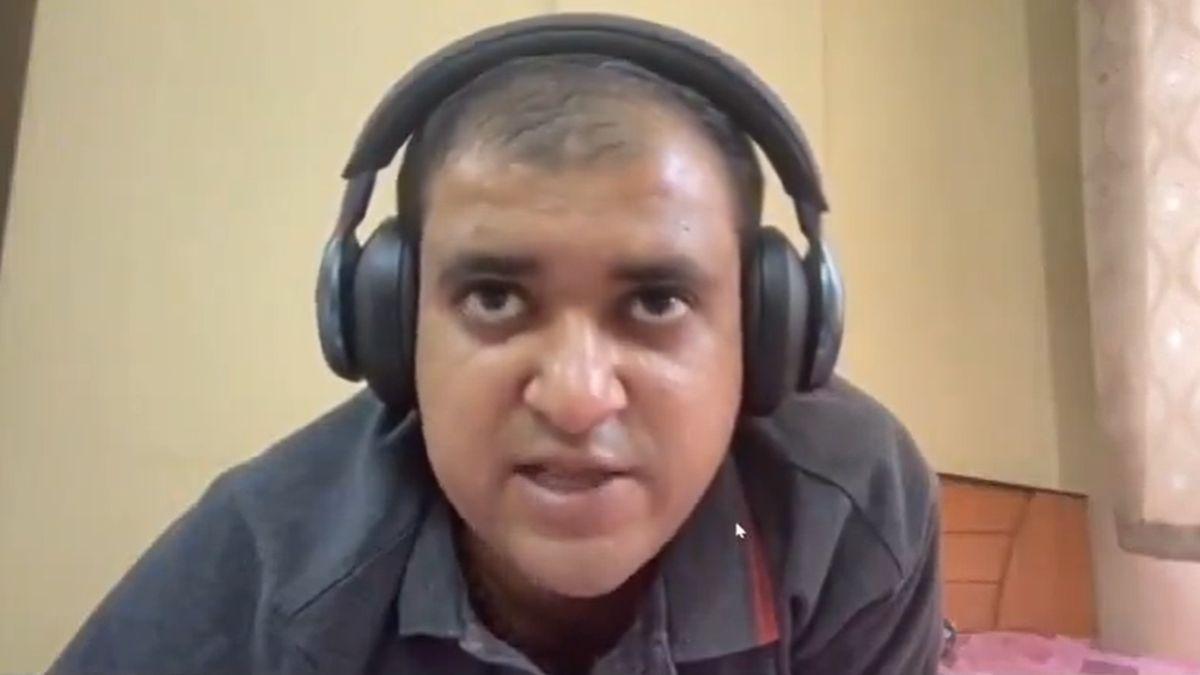Suicide Of Bengaluru Techie Exposes The Shocking Reality Of Marital Struggles And Mental Health Crisis!
Atul Subhash’s tragic suicide highlights the emotional toll of marital issues and mental health struggles, stressing the need for empathy, support, and intervention.

Unfortunately, the recent posthumous suicide of Atul Subhash – a senior digital media executive based in Bengaluru – has brought the human cost of unresolved marital disharmony and mental anguish into harsh focus.
Protested in his home, holding the placard that read “Justice is Due” with his wife as the target and a 24-page letter detailing his intentions of committing suicide, Atul breaks the much-needed silence on how empathy and communication in relationships and the need to seek professional help when facing mental health challenges.
They are followed by the actual incident, an example of how stress from private and occupational life can take a man’s life, and the need for authorities to work on investigating his death. At the same time, society addresses mental health and solving problems.
The Tragic Suicide Incident: What Unfolded?
The untimely demise of Atul Subhash, a high-ranking official in a private firm, enjoyed by his family in Bengaluru, has an emotional and vociferous outcry of marital discord and mental health issues.
The incident took place in Manjunath Layout, where Atul was found dead in his house. According to the postmortem note, he wrote a 24-page suicide note with serious allegations of dowry and harassment against the wife and her family members. In this note, some light is shed on the tremendous stress he was under, which finally culminated in his awful decision.
Atul remained a bachelor for a long time after his divorce following a prolonged marital dispute. His wife had filed a case for domestic violence against him in the state of Uttar Pradesh, which might have further worsened his condition. Based on the testimonies presented by the living members of his family, the impact of these issues and these legal entanglements most probably influenced significantly the state of his mental health at the time of death.
That’s why the intensity of his suffering was expressed in the fact that he thought through his suicide deeply. It is said that Atul mailed the suicide note to many people and shared it in the WhatsApp group of an NGO where he was a member.
The act was one way of trying to ensure that he was heard on his side of the story. He provided a local placard that read “Justice Is Due,” which seemed to be addressed to his wife because he was distraught.

Also, imagine realising that Atul carefully scribbled some information on a cupboard: the location where he kept his car keys, what he had done and what he needed to do, and most importantly, the details about the note indicating he wanted his story to be heard and known.
A senior police officer said that a case of unnatural death has been reported following the incident. Based on a complaint lodged by Atul’s neighbour, cases under section 108 of IPC for abetment to suicide have been filed against Atul’s wife and her relatives. The police have started investigating to understand how he died, and the issue continues to arouse attention.
This has put limelight on the fact that if marital issues and mental health issues are not solved, they result in depression and can even lead to a tragedy like this one. This case aptly highlights a severe lack of appropriate intervention mechanisms for people who experience a certain level of emotional pain. Police urged others experiencing similar problems to come forward and asked all to understand that everyone has mental health just as everyone has physical health.
This incident, as investigations continue, is a sobering reminder of the need to address mental health concerns, resolve conflicts in relationships, and create a society where individuals feel supported in their struggles rather than overwhelmed by them.

The Suicide Note: A Glimpse into Atul Subhash’s State of Mind
The act of scribbling a mere 24-page suicide note holds much greater meaning because it allows the reader, for the first time, a within-a-whisker view of the mental and emotional turmoil of Atul Subhash in his final moments.
Although the contents are private and sensitive, the note’s existence speaks volumes about his despair and overwhelming need for expression. The length of the note and its detail argue that Atul felt this deep, unrequited urge to give his version of events concerning his alleged instances of harassment and the marital strains he was under. He was bound to need to get his grievances registered, possibly with the feeling that without such a record, his pain and perspective would go unheard.
The note goes beyond anger or frustration; it reveals Atul’s emotional turmoil, sense of injustice, and profound helplessness. His detailed account indicates he had been struggling with these feelings for some time and felt compelled to leave a permanent record of his experiences. This act shows how individuals may turn to writing to find a resolution or regain control over their narrative in moments of crisis.
Where homicide is concerned, the role of the suicide note in ongoing investigations may be significant. It acts as a base for the police to understand Atul’s mindset before his death. It could provide crucial knowledge regarding the events that eventually led to his death. The fact that the note is very detailed could allow law enforcement to reconstruct aspects of his emotional and psychological state as well as some dynamics with his wife’s family.

Suicide and Marital Disputes: The Emotional Fallout Behind the Tragedy
The recent and still so sadly reminiscing suicide of Atul Subhash awakens severe doubts as to the destructive passion that resulting from conflicts in marriage can cause. In this case, the ongoing personal conflicts that we find out affected Atul’s mental wellbeing and presumably contributed to his decision.
The note he left before committing suicide to his wife and her family accused of harassment testify to the effects of strain in marriage. Atul, in the letter, complained of financial oppression from his wife, who was said to be earning her income and yet expected to receive ₹40,000 monthly in maintenance and yet wanted more. He was tired of this cycle of going through finances and emotional crises back and forth for her.
Such conflicts as those of spouse and parent-child or those involving marital issues will significantly impact mental health. With the mental pressure associated with legal cases, including domestic violence summoned by his wife and the unfavourable judgment given, an individual can be helpless, lonely and more helpless.
The problem was also aggravated by the social issues which are usually associated with marital problems in India. Stress from society, such as marriage and family pressure, can also enhance the psychological dysfunction that individuals experience during such conflict. Marital disagreements, as a norm in Indian society, make it very shameful to seek help, therefore robbing people of their emotional freedom.
)
The pressure boiled into a viral video where Atul said that the money he was earning was being used to let his enemies prosper and that the taxes he paid enabled the legal system he claimed was after him. This principle was evident in the eradication of the feeling of unfairness that he possibly held. In a bid to have his side of the story understood, Atul copied it to several people and posted it on the WhatsApp group of the NGO, which he is a member.
He precisely arranged all the information regarding his suicide note, keys to the vehicle, and suicide list in a cupboard. He also nailed a sign in his house that says “Justice is due” which is the last appeal of the upheaval that had transpired to him.
The police have already kicked the ball rolling as Atul’s brother has filed a complaint, and an FIR has already been lodged against his wife and her relatives. This case sheds light on the effects of conflicts that couples have, especially if they are married yet don’t seek to seek redress. Effects of emotional distress, which many in society experience, and the need to solve mental health issues that might be experiencing. It also sends a message to developers by informing those who need help with emotional and psychological problems and always require assistance during critical moments of life.
Mental Health Challenges in High-Stress Professions
Demands at work, and more so in private firms and especially in the technology sector, can also put a lot of pressure on the emotional state, topped up with personal issues such as marriage issues. Atul Subhash of the case probably received tremendous pressure from his work front and probably had increasing personal pressures as well.
These two parallel pursuits exhaust people on their job front while they are emotionally topped up with distressful experiences which they cannot handle considering they lack sufficient support to deal with their struggles. It is such a convergence of trade-related obligations and personal life challenges that underlines why organisations must pay attention to employee health and wellbeing.

In light of these issues, employers should provide counselling, stress management techniques and a general healthier environment that will go along way in assisting distressed employee’s deal with their personal and work related stresses.
Suicide, Legal and Social Implications: The Aftermath of a Tragic Incident
It became clear legal action could be taken against his wife if investigations affirmed his claims of mental harassment or abetting the suicide. The elaborate suicide note, along with a video where Atul accuses his wife and her family of emotional and economic abuse and manipulation of the legal system, have come to light.
Some of his statements are allegations of perjury, multiple active lawsuits against him, and even corruption within the judiciary. If all these allegations turn out to be accurate, his wife and even her family could be charged with abetment to suicide or harassment. The investigation, thus, has to be not only meticulous and objective in a manner that the justice delivered is fair and does not impose prejudice to either part of the case but also has to examine all the factors pertinent to the socio-legal setting in which the case was prosecuted.
His anxieties about the legal process were at the core of his mental suffering, Atul’s. He told how he was forced to remain in a legal system that denied he was guilty with stories of corruption and legal coercion. He accused his wife of conspiring by filing many cases against him, some of which were of a serious nature, such as a dowry case and a case in which she accused him of violently abusing her.
He accused his wife of putting outrageous allegations against him which not only affected his character but also his finance and health. His allegations that the court itself exposed him to sexual harassment in the form of demands for bribes and biased rulings are signs of a grounded unfairness.
It is thus critical to analyse his statement to the effect that his wife contributions, including financial, demanded by her, separation from their child led to an emotional break down of the subject.
This case has serious legal implications beyond Atul’s personal tragedy. The accusations he makes against the system, particularly the judge who supposedly asked for a bribe and mocked his suicidal ideation, point to systemic flaws in India’s judicial process. Atul’s tragic end raises questions about the fairness and transparency of the legal system, especially in family courts.
His plea for his case hearings to be broadcast live and his request that his case be shifted from Mangalore to Bengaluru reflect his mistrust of the court’s ability to deliver impartial justice. This debate has been taken to a higher level on social media by many who have expressed their feelings about the so-called “legal genocide of men,” pointing out that men are being discriminated against in family-related cases.
This case also sparks an important social conversation on gender roles, victimhood, and accountability. While Atul’s death throws light on the often-unseen struggles of men in family disputes and legal battles, it also brings to the fore the emotional and mental toll that unresolved marital issues can have, regardless of gender.

The response of society to the case is often polarised, with gender role myths influencing who is perceived to be the real victim. Still, Atul’s case challenges such stereotypes and suggests a more balanced approach in attending to the complexities of marriage disputes and mental health conditions.
The passing of Atul Subhash highlights the impact of marital disputes and exposes weaknesses in the legal system. It is essential to conduct a thorough investigation to ensure accountability and implement necessary changes to prevent similar tragedies in the future. This case also emphasises the importance of raising mental health awareness and providing better support resources for those facing personal and workplace challenges.
Suicide and Seeking Help: The Urgent Need for Emotional Support and Awareness
The premature death by suicide of Atul Subhash has given a tap on the back for anyone who goes through Nagar’s book that nobody know when they are going to hit their low moments that they need to call for help. While lives are being threatened, support from foundations like Vandrevala Foundation, Snehi, and AASRA provides much-needed counselling. Main support comes from close ones, friends, and, in many cases, counselling assisting in managing vast quantities of the load. Cops advise those with marital problems or those with any emotional problems to seek help before the situation reaches this level.
It is a good reminder of how we need to normalise the use of therapy and talking about mental health. That is why couples should not keep arguments and feelings of stress and married people should not be ashamed of getting professional help. Mainly legal advice and counselling services are important in addressing conflicts, so that situations do not escalate.






